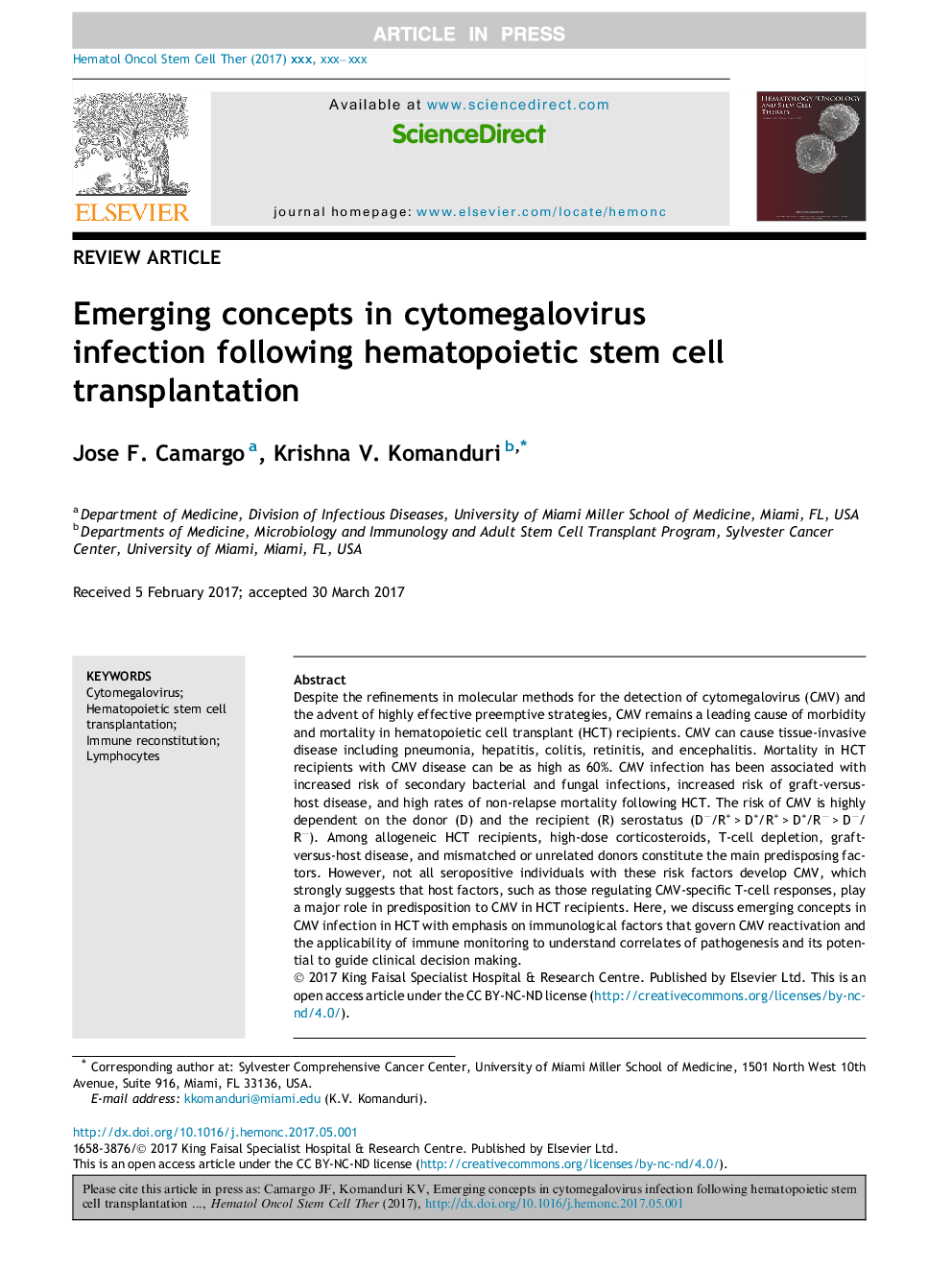| Article ID | Journal | Published Year | Pages | File Type |
|---|---|---|---|---|
| 8452928 | Hematology/Oncology and Stem Cell Therapy | 2017 | 6 Pages |
Abstract
Despite the refinements in molecular methods for the detection of cytomegalovirus (CMV) and the advent of highly effective preemptive strategies, CMV remains a leading cause of morbidity and mortality in hematopoietic cell transplant (HCT) recipients. CMV can cause tissue-invasive disease including pneumonia, hepatitis, colitis, retinitis, and encephalitis. Mortality in HCT recipients with CMV disease can be as high as 60%. CMV infection has been associated with increased risk of secondary bacterial and fungal infections, increased risk of graft-versus-host disease, and high rates of non-relapse mortality following HCT. The risk of CMV is highly dependent on the donor (D) and the recipient (R) serostatus (Dâ/R+ > D+/R+ > D+/Râ > Dâ/Râ). Among allogeneic HCT recipients, high-dose corticosteroids, T-cell depletion, graft-versus-host disease, and mismatched or unrelated donors constitute the main predisposing factors. However, not all seropositive individuals with these risk factors develop CMV, which strongly suggests that host factors, such as those regulating CMV-specific T-cell responses, play a major role in predisposition to CMV in HCT recipients. Here, we discuss emerging concepts in CMV infection in HCT with emphasis on immunological factors that govern CMV reactivation and the applicability of immune monitoring to understand correlates of pathogenesis and its potential to guide clinical decision making.
Related Topics
Life Sciences
Biochemistry, Genetics and Molecular Biology
Cancer Research
Authors
Jose F. Camargo, Krishna V. Komanduri,
